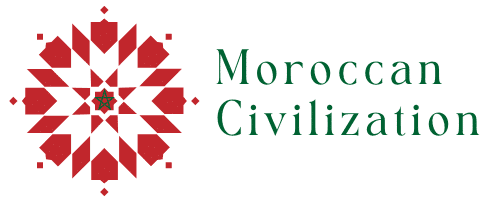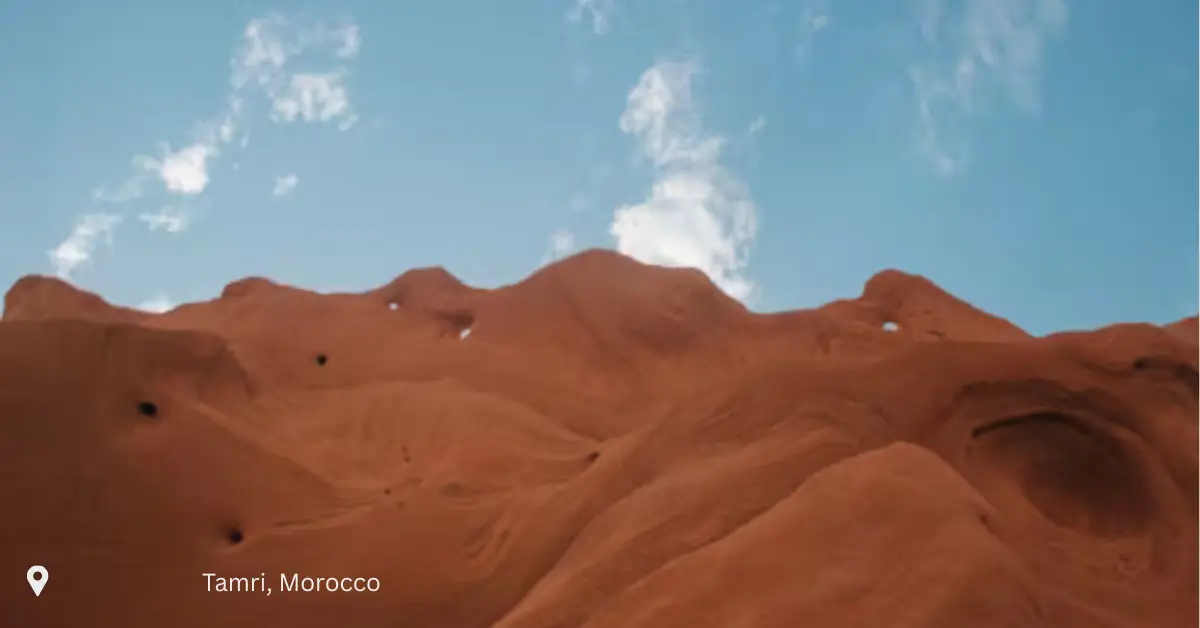Morocco Tours 7 Powerful Experiences That Will Move You
I remember the breeze from the Atlantic that morning in Casablanca, before we headed north. I was just a kid, maybe ten. My father was driving. He had one hand on the wheel and the other tapping along to old Amazigh songs on the radio. The city slowly disappeared behind us — glass buildings giving way to open land, dry wheat fields, olive trees stretching out toward the mountains. I looked out the window and just… felt it. The real Morocco. Not the one people talk about in magazines or travel blogs — but the one that breathes in small villages, in prayers whispered in the wind, in the way people share bread without asking for anything in return.
That moment stayed with me.
Table of Contents
Years later, when I created Moroccan Civilization, I didn’t do it to sell Morocco tours. I did it because I wanted people to understand what this place really is. Morocco isn’t just beautiful — it’s alive. It has soul. And if you travel with respect, it will open up to you.
Our tours don’t just drop you off in Marrakech or Fes for pictures. We walk with shepherds in the Rif. We sit with potters in the Saiss. We drink tea under the stars in the Sahara, where silence carries meaning.
When someone asks me, “What’s different about your tours?” I always say this: they’re not built for show — they’re built for connection. You’re not a tourist. You’re a guest. A learner. A witness. You come here to feel something real.
This isn’t about bucket lists. It’s about roots.
Unique Experiences That Set Morocco Tours Apart
Most people ask me, “Where do I even start in Morocco?” I always tell them: take the road between Marrakech and Fes. That stretch has a bit of everything — city life, mountains, and the desert. You’ll see just how many sides Morocco has in a matter of days.
You pass through the High Atlas, where small Amazigh villages sit quietly in the valleys. Life there hasn’t changed much. People work their land, bake bread outside, and greet you with a smile like you’ve lived there forever. It’s not a performance — it’s just how people are.
And that’s the thing. A lot of people come here expecting big monuments or Instagram spots. But what stays with them isn’t the photo — it’s the moments in between. Sitting on a woven mat eating lentils with a family in the Rif. Watching a woman in the Medina of Fez weave a carpet without looking at her hands. Drinking tea with a potter who’s been shaping clay since he was six. These things aren’t on a checklist. They just happen when you take your time and stay open.
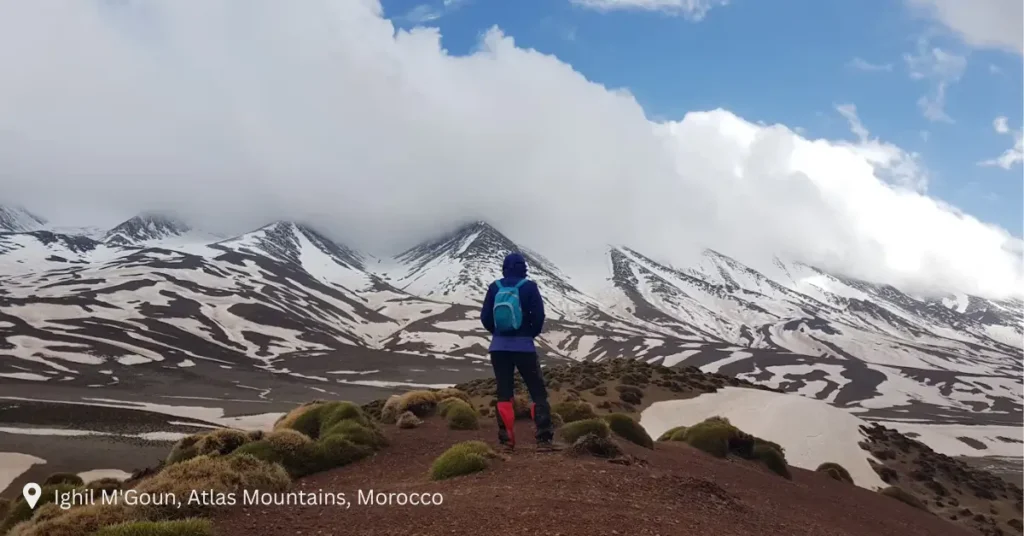
Even in the Sahara, the memory people talk about isn’t the camel ride. It’s the quiet after dinner — the fire low, the stars out, everyone just listening. That kind of stillness is rare. And it changes people, even if they don’t realize it right away.
This is what I try to show with our Morocco tours. It’s not about ticking off landmarks. It’s about showing up fully. Letting the country speak for itself — through its people, its food, its music, its silences.
If you’re looking for something real, Morocco will meet you there. But only if you’re willing to slow down.
Adventure and Nature – Morocco for Explorers
Hiking the High Atlas: More Than a View
You don’t need to be a mountaineer to fall in love with the High Atlas Mountains. Some people come to climb Mount Toubkal, the highest peak in North Africa, but many just come to walk, to breathe, and to reconnect. The hikes aren’t about speed — they’re about rhythm. You pass through villages where kids run barefoot, and elders sit under fig trees, greeting you with a nod or a simple “labas?”
In the Ourika Valley or around Imlil, the trails wind past walnut groves, stone houses, and terraced farms. You stop for tea with a family. You hear the wind and the birds and maybe the sound of someone working with their hands. It’s not about being far from the world — it’s about being closer to what matters.
What to Expect on Atlas Treks
- Moderate trails suitable for all levels
- Simple guesthouses run by local families
- Meals made from what’s grown nearby
- Real connection, no filters
Sahara Desert: Silence, Sand, and Stillness
There’s a lot of talk about the Sahara, and yes, it’s beautiful — but it’s not the size of the dunes that changes people. It’s the stillness.
When you arrive in Merzouga, you see the orange dunes of Erg Chebbi rising out of the land like waves. You hop on a camel, ride out as the sun drops behind the hills. At camp, you eat around the fire, listen to music, maybe talk, maybe not. Then the stars come out — and it’s just you, the cold air, and the quiet.
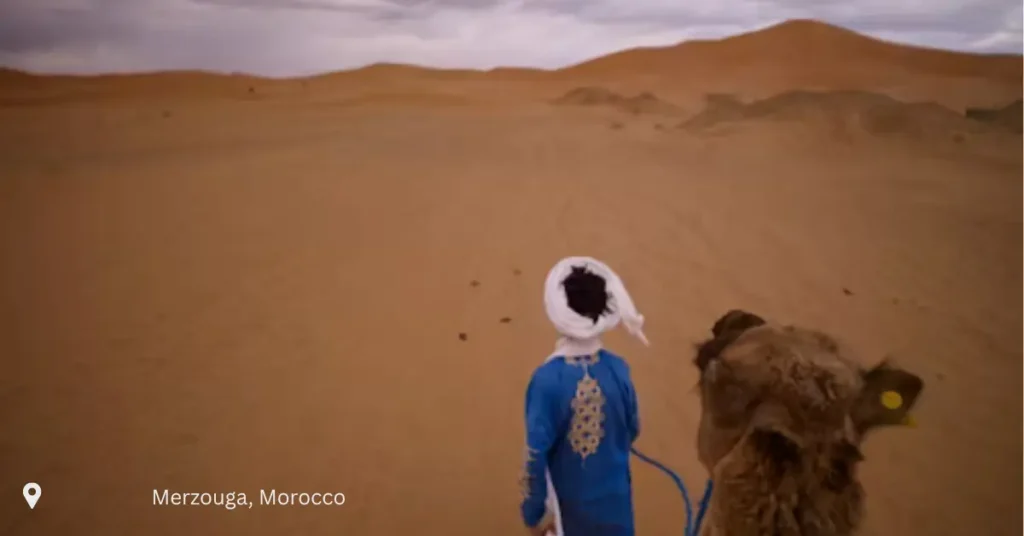
People who live fast lives always say the same thing after a desert night: “I didn’t know I needed that.”
Desert Activities (if you want more than just peace)
- Sandboarding, 4×4 rides, or quad biking
- Tea with nomadic families
- Fire-circle music with Gnawa rhythms
- Stargazing without light pollution
Why Morocco Is Built for Explorers
Morocco is small on the map, but it holds everything — ocean, mountains, desert, forests. And everything is close. In a single week, you can hike in the Atlas, cross palm-filled valleys, sleep in the desert, and wake up to the sound of waves in Essaouira.
This isn’t a place you rush through. You walk it. You sit with it. You listen.
Safe, Guided, and Customizable Morocco Tours
Traveling to Morocco? Safety Starts With Connection
One of the first things people ask me is, “Is Morocco safe?” And I always say, yes — but not because there’s zero risk. It’s safe because of the way we move. When you go with the right people, when you’re respectful, and when you understand the culture, Morocco opens up to you.
That’s why I always recommend local-guided Morocco tours. You’re not figuring things out alone. You’re with someone who knows the roads, the customs, the quiet rules nobody explains on a travel blog. Whether it’s your first time in North Africa or your tenth, having a guide who grew up here makes all the difference.
You’ll feel it right away — in how people greet you, how a shopkeeper in a small town insists you sit for tea before talking business, how a farmer offers you a fig without expecting anything back. Morocco tours, when done the right way, don’t just show you places — they introduce you to people.
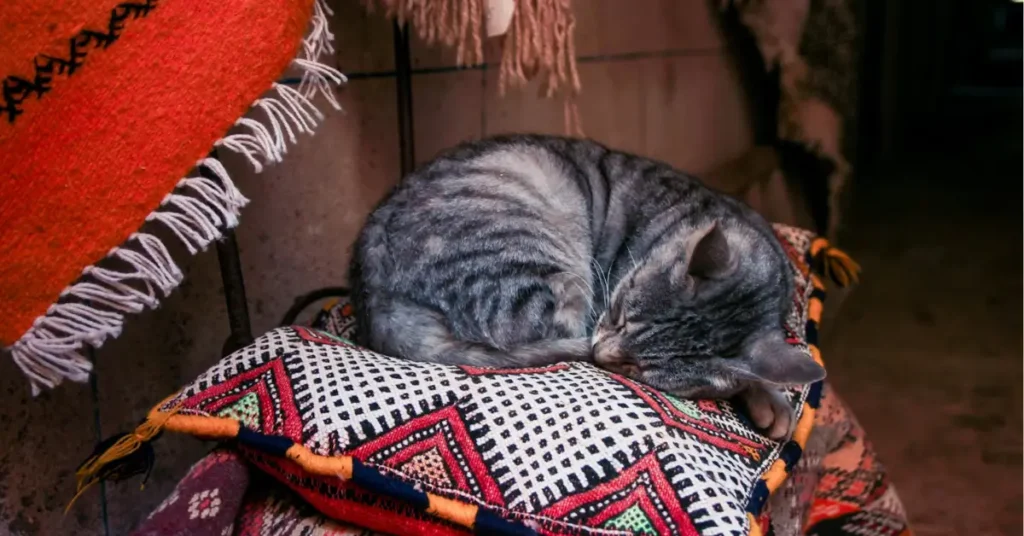
Your Tour, Your Way — Build It Around What Matters to You
What I love most about designing Morocco tours is how flexible they can be. Some people want the highlights — Marrakech, Sahara, Fez — all in one week. Others just want to spend time in a mountain village, maybe cook with a family, maybe just walk. Both are valid. And both are possible.
We don’t do cookie-cutter travel. You can slow it down, skip the crowds, and build a trip that actually feels like you. Into food? We’ll visit co-ops and family kitchens. Like nature? We’ll take you where the roads end and the trails begin. Looking for spiritual space? We’ll get you there — quietly.
Every traveler is different. The best Morocco tours are, too.
Why Local Tours Just Work Better
When you travel with someone local, the little things come alive. You don’t just see a door in Fez — you hear the story behind it. You don’t just pass a field — you know what’s growing and who planted it. And you don’t just eat — you understand what went into that bread, who baked it, and why it tastes different than anything back home.
That’s what I mean when I say our Morocco tours are rooted. They’re not just about movement. They’re about meaning.
What to Know Before You Go
The Right Time to Visit Morocco? It’s About Balance
People often ask me when they should plan their trip. I always say: spring or fall. If you’re looking for weather that lets you enjoy everything — walking, hiking, desert nights, even city strolls — March to May and September to November are your best bet. Blue skies, warm days, cool evenings. No extreme heat, no big crowds. It’s the perfect season for most Morocco tours.
Summer? Honestly, not ideal — especially in the south. I’ve seen travelers land in Marrakech in July and melt by the time they hit Merzouga. The heat’s no joke.
Winter’s quiet, and that can be beautiful. The desert feels different then — softer. But if you’re heading up into the Atlas Mountains, remember, it can snow. Pack for it.
If you’re looking at Morocco tours and you’re not sure when to come, think less about the schedule and more about how you want the country to feel when you’re here.
Tipping, Alcohol, and Language — Let’s Keep It Real
Let’s run through the basics real quick.
Tipping is part of life here. Nobody begs, but it’s good manners to leave a little something. For a guide on one of your Morocco tours, especially if they’ve really shown you something special, tipping is appreciated — not expected, but it says “thank you” in a way that matters.
Alcohol? Yes, it’s available — in cities, tourist spots, some restaurants. But no, you won’t find it in every small café. Morocco’s still a Muslim country. It’s open, but traditional in many ways. Respect that and you’ll be just fine.
Languages? You’ll hear many. Darija, Tamazight, French, some Spanish — and yes, English is spoken too, especially by people working in Morocco tours. You don’t need to speak perfectly — but saying “salaam” or “shukran” goes a long way. People notice the effort.
Small Details That Matter More Than You Expect
- Dress modestly — especially in rural areas. It shows respect, that’s all
- Always carry cash — smaller shops and local guides don’t take cards
- Say “salaam” when entering a shop or home
- Ask before taking someone’s photo — not everyone wants a camera in their face
- Observe before jumping in — Morocco moves at its own pace, and that’s part of the beauty
Morocco doesn’t ask much. Just that you show up curious, kind, and aware. And in return? You’ll walk away with more than souvenirs. You’ll carry moments that last.
The best Morocco tours do more than move you around — they bring you closer to people, places, and parts of yourself you might’ve forgotten.
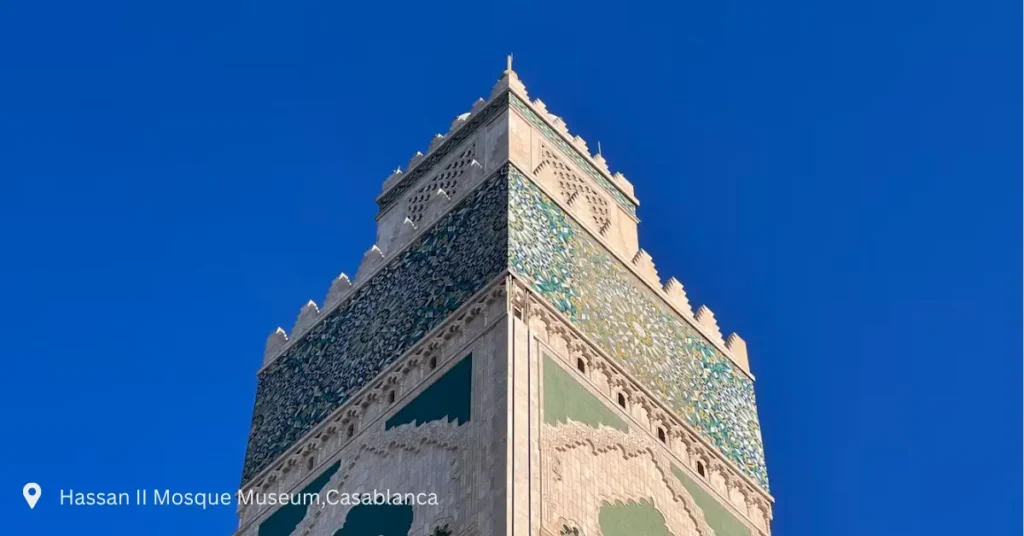
This Isn’t Just a Trip — It’s a Real Connection
Look, I’ve seen people land in Morocco thinking they’re here to “tick off” a list. See the dunes, take a photo in a medina, maybe post a story. And that’s fine. But what I’ve learned — over years of guiding, walking, listening — is that Morocco tours are never really about the places. They’re about the people. The quiet moments. The in-between.
You’re not just coming here to look. You’re coming to feel. To taste. To slow down. And to remember what real connection feels like.
This country has taught me a lot — about patience, about pride, about community. It’s not perfect. But it’s rich in spirit. And when you take the time to travel with respect, Morocco meets you where you are. It gives back.
That’s what I try to share with Moroccan Civilization. Not just another tour — but a story you step into. A real, human experience you carry long after the bags are unpacked.
So when you’re ready — Morocco tours we’ll be here.
